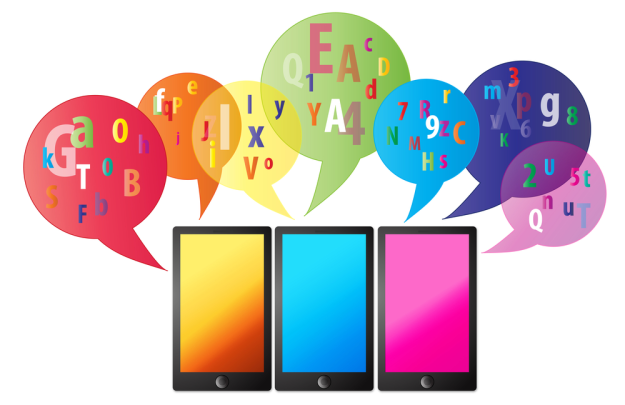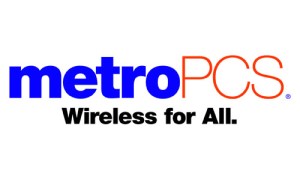
T-Mobile has always offered “unlimited” mobile data service, but it came with an asterisk and a flurry of fine print at the bottom of contract agreements. Users could use all the data they wanted, but once they exceeded a monthly threshold for their plan — usually 2GB or 5GB a month — T-Mobile would throttle performance down to about 128Kbps. That’s enough to check email or post a quick status update, but forget uploading a bunch of photos, watching video, or even streaming music.
Now, T-Mobile has announced it will offer truly unlimited data plans: All the data you can use, no throttling, for a fixed fee of $20 to $30 per month on top of a traditional voice plan. The rates will be available beginning September 5. The move comes one day after regional carrier MetroPCS announced its own unlimited 4G LTE data plan starting at just $40 a month — although that’s just a promotional rate, so there’s no telling how long MetroPCS will keep it on the table.
Are the plans a good deal? And are they enough to keep mobile consumers interested in T-Mobile and MetroPCS as the companies struggle to compete with behemoths like AT&T and Verizon Wireless? After all, T-Mobile and MetroPCS have one thing in common when it comes to attracting (and retaining) customers: neither offers the iPhone.
T-Mobile’s unlimited plan

T-Mobile’s new unlimited data plan will be available starting September 5 as a $20 add-on to a Value voice-and-text plan, or a $30 add-on to a Classic voice-and-text plan. That brings the cost of a single line Value plan with unlimited nationwide data to a total cost of $69.99 per month (excluding taxes and fees), while a single line Classic plan with unlimited data will cost $89.99 a month — again, omitting taxes and fees. The unlimited data plan is not available separately or with any of T-Mobile’s other options, including pre-paid service.
While T-Mobile has made a point to include no throttling, that isn’t to say T-Mobile’s unlimited data plan is now asterisk-free. Although T-Mobile calls the service its Unlimited Nationwide 4G Data plan, T-Mobile’s variety of 4G is still its souped-up HSPA+ network. To be sure, that network does hop along, routinely offering download speeds of 8 Mbps or more in areas with decent coverage and in theory jumping all the way up to 42 Mbps. But top speeds are available only to phones specifically engineered for T-Mobile’s network. While the company is working hard to transition its network to be more broadly compatible with other 3G phones, they aren’t there yet. Similarly, T-Mobile’s transition to “true” 4G LTE service isn’t scheduled to be available to consumers until sometime in 2013. Bottom line: Customers who want decent performance from a T-Mobile smartphone need to live in an area with reliable service and have a T-Mobile’s phone.
One more caveat: Folks taking advantage of the unlimited data plan won’t be able to use their devices as mobile hotspots to share their mobile broadband connections with other devices, like tablets, gaming devices, or computers. T-Mobile users who want hotspot capabilities will pay at least $94.99 a month — and have a 5GB monthly data cap.
MetroPCS’s unlimited plan

MetroPCS is also rolling out an unlimited data plan, offering unlimited voice, text, and data on a single line for $55 per month. Existing MetroPCS customers can pick up the unlimited service for $50 a month on additional lines. Unlike T-Mobile’s HSPA+ 4G network, MetroPCS’s unlimited data plan is LTE-ready: MetroPCS is already rolling out 4G LTE to its service areas, and customers with LTE phones are eligible to use unlimited data on that LTE network.
There are a couple of catches. The first, of course, is that MetroPCS is a regional carrier. If you don’t live in one of the 17 metropolitan areas it serves (which, admittedly, includes New York, Boston, Los Angeles, Miami, the San Francisco Bay area, and Dallas), customers can’t get their service. Furthermore, even existing MetroPCS customers probably need a new phone to take advantage of the company’s new LTE network. Right now, fewer than 10 percent of MetroPCS’s customers have phones that can use its new high-speed network. MetroPCS’s unlimited data plan offer is a pretty transparent attempt to get its existing customers to upgrade to new LTE-capable devices — not that there’s anything wrong with that.
Unfortunately, the pricing on MetroPCS’s unlimited 4G data plan is a promotion: it’s not a permanent offering. (Not that any mobile plan can really described as “permanent.”) MetroPCS hasn’t said how long it plans to run the promotion, but the Wall Street Journal reports (subscription required) it could last three to six months. When the promotion ends, MetroPCS will revert to its current $70 a month price for unlimited data.
Finally, like T-Mobile, MetroPCS’s unlimited 4G data service does not include using a 4G device as a mobile hotspot.
How they stack up

T-Mobile and MetroPCS aren’t the only players in the U.S. mobile market that offer unlimited data. The biggest player in the field is Sprint, which has so far bucked the trend of major mobile operators in either throttling data or instituting data caps. Sprint’s unlimited data service starts at $109.99 per month (plus tax), and for now is limited to 3G service. (That’s a $99.99 plan plus a $10 a month “premium” for using it with a smartphone.) Sprint is still in the process of rolling out equipment for LTE service and had planned to have 12,000 sites up and running by the end of 2012, although there have been some delays as the company works to get fiberoptic backhaul in place. Broad LTE coverage from Sprint isn’t expected until 2013.
Sprint’s unlimited data plan seems to make both T-Mobile’s and MetroPCS’s high-performance offerings seem like a bargin. However, Sprint offers broader coverage than T-Mobile (and especially MetroPCS), and Sprint can also offer customers the iPhone.
Of course, AT&T and Verizon Wireless are fond of telling customers that their capped data plans only impact a small percentage of customers who use mammoth amounts of mobile data: According to the companies, most customers never come close to hitting their monthly data limits. Verizon currently starts capping individual users at 2GB of data per month and charges $15 per GB of overage. AT&T starts off with a 3GB monthly cap and charges $10 per GB of overage.
Pros and cons

Are either T-Mobile or MetroPCS’s unlimited data plans a good deal? The answer most likely depends on whether you’re already a T-Mobile or MetroPCS customer — and how you feel about buying a new phone.
Neither T-Mobile or MetroPCS currently offer the iPhone, so if you’re dead-set on an Apple device, these plans are out.
If you already have a smartphone running Android or another platform on another carrier, you’re in a similar situation. MetroPCS’s LTE network uses 1,900 MHz and AWS frequency bands, so 4G phones from AT&T and Verizon won’t operate on its LTE service. In other words, you’ll need to buy a new device to get high speed service on MetroPCS, even if you have a 4G phone on another network.
If you already have a smartphone from AT&T, T-Mobile’s unlimited data plan might be an option — eventually. Right now T-Mobile’s special flavor of high-speed HSPA+ only works with devices designed for its network; however, T-Mobile is in the process of reconfiguring its network in such a way that some AT&T 3G/4G HSPA+ devices — including the iPhone — will be able to use its services. (T-Mobile already has more than a million customers using iPhones on its network, but they’re currently limited to 2G EDGE service.) As T-Mobile’s redeployment proceeds and it shifts to embrace the same frequency bands as AT&T, some AT&T handsets owners — including iPhone owners — could find T-Mobile’s new unlimited data plans very tempting. But that network redeployment hasn’t extended very far yet, and T-Mobile doesn’t expect to complete it until sometime in 2013.
Bottom line: Both T-Mobile’s and MetroPCS’s new unlimited data plan offers are primarily tempting to existing T-Mobile and MetroPCS customers — particularly customers who are on the edge of buying a new phone. In that sense, they’re sound business moves. T-Mobile has been steadily losing subscribers without the iPhone. Unlimited data plans are a good way to keep existing T-Mobile contract subscribers on board. For MetroPCS, the unlimited data promotion is a good way to convince existing customers to upgrade to new devices that can use its shiny new LTE network. The plans aren’t going to be ground-shaking turning points for either company — but they should help keep some of their most valuable smartphone customers happy.
[Images via Shutterstock / carlosgardel, Shutterstock / Sam72]
Editors' Recommendations
- T-Mobile’s newest plans are exciting for new (and old) customers
- Get two months of Kindle Unlimited for ONLY $5 with this Prime Day deal
- AT&T switches up its strategy with three new Unlimited data plans


